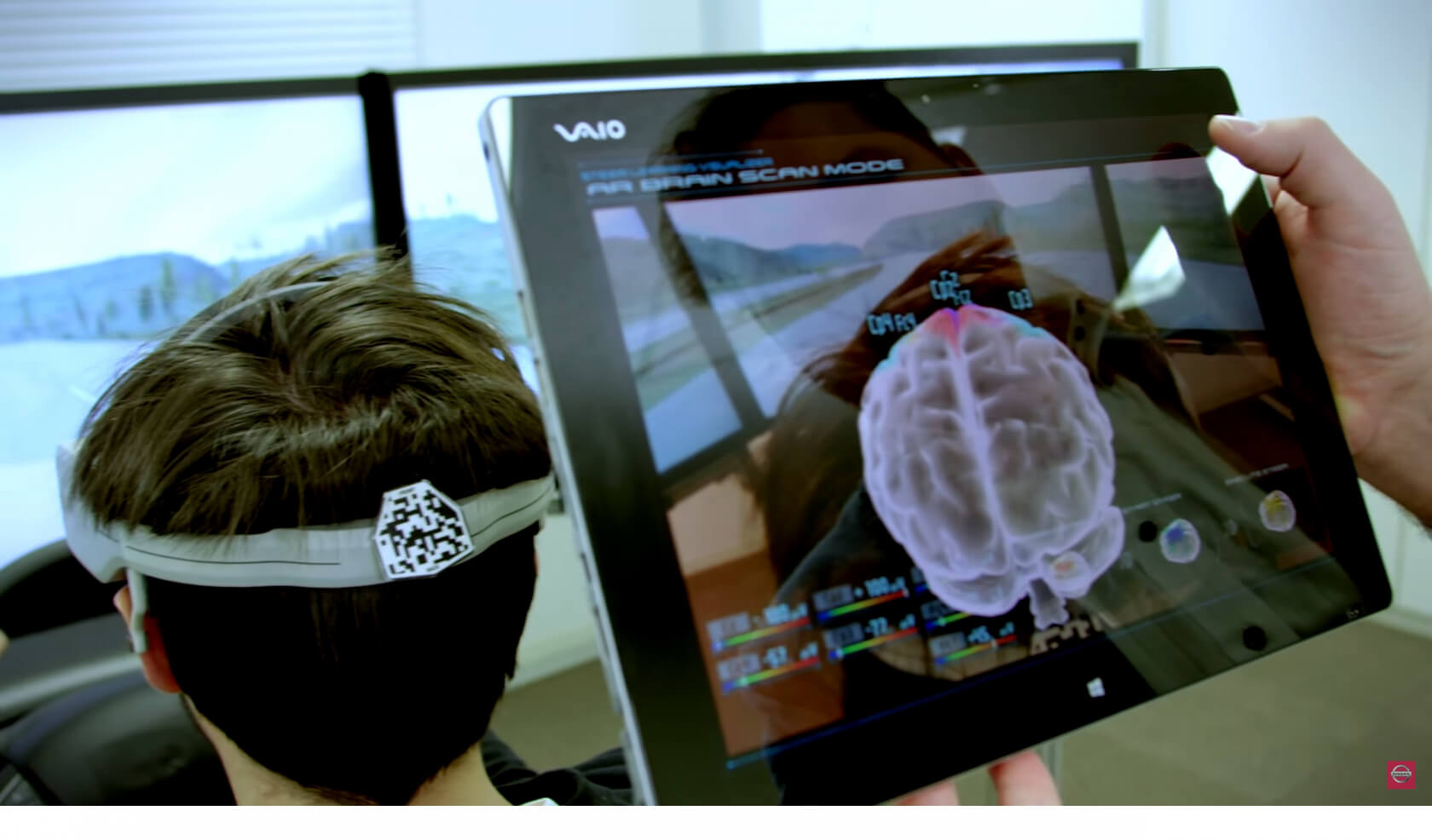Car maker Nissan is no stranger to the world of innovative car technology, but its latest product looks like the stuff of science fiction: cars that can read minds.
The brain-to-vehicle, or B2V, technology can predict a driver's movements and act on them before they do. Through an electroencephalography (EEG) skull cap, the system reads brain waves and adapts to the wearer's driving style. B2V can respond to maneuvers like braking and turning between 0.2 seconds and 0.5 seconds faster than the driver, making a car feel more responsive and sportier. It also has the potential to save lives in dangerous situations, when even the tiniest improvement in reaction time can make all the difference.
While the thought of a car acting on its own while you're supposed to be controlling it may sound a little concerning, Nissan says people won't notice these earlier responses. Drivers will feel like they're in total control of the vehicle, apparently.
"We imagine a future where manual driving is still a value of society," said Lucian Gheorghe, a senior innovation researcher at Nissan. "Driving pleasure is something as humans we should not lose."
B2V also has applications for autonomous vehicles, where it could detect a passenger's discomfort and alter the car's driving style to compensate. Additionally, Nissan claims it could use "augmented reality to adjust what the driver sees and create a more relaxing environment," which definitely sounds like Black Mirror territory.
Last year saw Nissan reveal its sweat-sensing seat material that warned drivers when they were dehydrated. There was also the signal shield, an armrest compartment that blocked electromagnetic fields using the same principles as a Faraday cage.
Nissan will be explaining more about B2V at CES next week, but it'll be a while before the system is ready for the roads; it's estimated to be around 5 to 10 years away.
